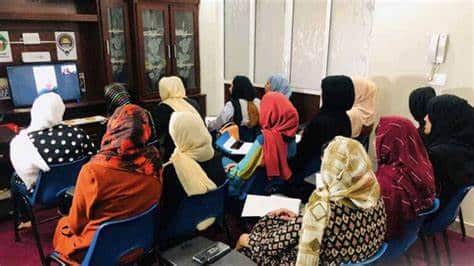
Silent suffering of Afghanistan’s LGBT+ community
رنج خاموش جامعه +LGBT افغانستان
افغانستان تهدیدی هشداردهنده برای امنیت و رفاه جامعه دگرباشان جنسی+ است و آنها را در معرض آزار و شکنجه هدفمند، سوء استفاده فراگیر، تبعیض و خشونت قرار می دهد. طالبان در گسترش یا اجرای مستقیم این اعمال نقش دارند. تنها تعداد کمی از LGBT+ افراد به محل امن تخلیه شده اند. برخی دیگر به کشورهای همسایه پناه برده اند، هرچند با شرایط نامطمئن مواجه شده اند. موانع متعددی مانع جستجوی آنها برای یافتن پناهگاه های امن می شود، از جمله دسترسی اندک به گذرگاه ایمن بشردوستانه و عدم شناخت در مورد خطرات تهدید کننده زندگی که این جامعه با آن مواجه است.
Amid Afghanistan’s security and economic crisis, the health and wellbeing of the country’s lesbian, gay, bisexual, and transgender (LGBT+) community are being systematically neglected. LGBT+ individuals have long endured discrimination, abuse, and violence in Afghanistan, but the situation has considerably worsened under the Taliban regime.1, 2 The pressing challenges confronting this persecuted group demand immediate global attention.
Even in high-income countries, sexual and gender minorities experience substantial health disparities due to various intersecting stressors.3, 4 These stressors include structural violence, internalised stigma and identity concealment, and interpersonal discrimination.5 Consequently, they encounter mental health problems, such as depression, anxiety, risk of suicide, and unhealthy coping mechanisms.5, 6 Additionally, these individuals often experience unemployment and socioeconomic marginalisation.5 However, the situation of gender and sexual minority people in Afghanistan is unique due to the severity of multiple interconnected aggravating factors.
Afghanistan presents an alarming threat to the safety and wellbeing of the LGBT+ community, exposing them to targeted persecution, pervasive abuse, discrimination, and violence.1, 7 The Taliban plays a role in fostering or directly carrying out these acts.1 Despite the extreme dangers, only a small number of LGBT+ individuals have been evacuated to safety. Others have sought refuge in neighbouring countries, albeit facing precarious circumstances. Numerous obstacles impede their search for secure havens, including little access to safe humanitarian passage and a lack of recognition regarding the life-threatening risks faced by this community.1
In a hostile environment, access to adequate health care remains severely limited. The health-care system and health-care professionals can perpetuate prejudice, compounded by heteronormative social attitudes and legal restrictions, thus denying or restricting proper care. Moreover, financial constraints stemming from unemployment, poverty, and marginalisation pose significant challenges for many LGBT+ individuals seeking private health care. As a result, their health-care needs, including routine care, sexual health care, HIV/AIDS prevention and treatment, and gender-affirming health care, go unaddressed, deepening health disparities and perpetuating a distressing cycle of ill health and vulnerability. Additionally, testing for sexually transmitted infections (STIs), including HIV, remains taboo, and there is little awareness of and access to safe sex practices, such as condom use and pre-exposure prophylaxis. Furthermore, discrimination based on sexual orientation and gender identity probably discourages many from seeking health care altogether as a protective and survival mechanism.5, 8
These factors exacerbate anxiety, depression, social isolation, emotional inhibition, and other mental health problems.5 Data from Afghanistan are scarce; however, evidence from Pakistan, Iran, Kuwait, and Lebanon—where there are similar forms of discrimination and risks associated with identifying as LGBT+—indicates that there are increased mental health issues among sexual and gender minorities compared with heterosexual individuals.5 Typically, social and family support protects against adverse mental health outcomes both in general and in the LGBT+ population; however, as highlighted by Human Rights Watch, sexual and gender minorities in Afghanistan often endure abuse from their families, neighbours, and former partners. They also experience profound isolation, and live in constant fear of being exposed or discovered by their relatives.1
To address the health of LGBT+ people in Afghanistan, bridging the evidence gap and understanding their specific health needs is imperative. These needs include preventing and treating STIs, improving mental health care, and addressing psychological trauma, including the direct consequences of gender-based violence. Collaboration, inclusivity, and participatory approaches are crucial to gaining a better understanding of the health needs of LGBT+ individuals and informing effective interventions. However, without ensuring safety and security, access to health care and improved health outcomes cannot be achieved. Therefore, as the de facto government, the Taliban must urgently cease and prevent all forms of discrimination and violence based on sexual orientation or gender identity. They should also facilitate aid programmes by non-governmental organisations to assist this vulnerable group and provide adequate protections for workers involved.
The international community is responsible for exerting pressure on the Taliban to recognise the rights of all individuals in Afghanistan, including sexual and gender minorities. Given the heightened risks faced by LGBT+ individuals, their applications for evacuation and resettlement must be prioritised, and requirements such as providing biometrics in hostile neighbouring countries should be waived. Humanitarian assistance should be channelled towards organisations that provide programmes specifically designed to aid LGBT+ individuals. Despite the challenging circumstances, Afghanistan’s health system has avoided collapse, largely thanks to international aid supporting primary and secondary health services.9 Within this context, aid organisations can play a crucial role in supporting the health needs of LGBT+ individuals. This support includes fostering an inclusive environment in health facilities, and ensuring access to non-discriminatory and culturally competent health-care services for gender and sexual minorities. By training health-care staff on LGBT+ health issues, organisations can enhance awareness and sensitivity, ultimately improving the quality of care.
Additionally, organisations can collaborate with local and international LGBT+-focused community organisations or networks to gather insights, develop tailored programmes, and facilitate targeted interventions. These efforts can include raising awareness about LGBT+ health concerns, providing information and resources about these concerns to the LGBT+ community, and offering specialised support services that address the unique challenges faced by LGBT+ individuals in Afghanistan.
MSR has an in-practice fellowship in primary care funded by the UK National Institute for Health and Care Research (NIHR; grant number 302007). The views expressed are those of the authors and not necessarily those of the UK National Health Service, the NIHR or the UK Department of Health and Social Care. We declare no competing interests.
Main Resource Link
- Tags
- Asia



